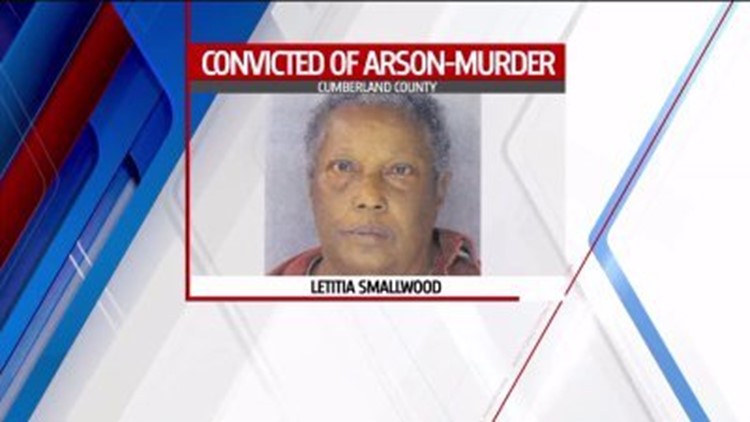Letitia Smallwood, who has been in and out of prison, and about to go back, has been living quietly with her aunt in Carlisle, according to the Pennsylvania Innocence Project.
Smallwood was released from prison nearly two years ago, when a Cumberland County Court decided her conviction was erroneous. She was convicted of setting an apartment fire that killed two people in 1973, however, she has maintained her innocence ever since.
Pennsylvania Superior Court determined that new evidence introduced through a petition process was not filed in a timely manner. Today, the court ordered Smallwood to return to prison, overruling the Cumberland County Court’s decision.
“She has been able to receive dialysis regularly, and continues to volunteer in her community at a soup kitchen,” Pennsylvania Innocence Project Legal Director Marissa Bluestine said. “When she learned about the ruling, she still made sure to make it to the soup kitchen on time to help with the next meal.”
Smallwood has been trying to have her conviction overturned for nearly four decades.
- Smallwood’s first post-conviction petition was denied in 1979.
- Fifteen years later, on March 14, 2014, Smallwood filed a second petition. The Commonwealth filed a motion to dismiss the petition as untimely and, in the alternative, previously litigated.
- On June 20, 2014, the court heard arguments. Thereafter, the court held an evidentiary hearing on Dec. 15, 2015, and concluded that Smallwood had met her burden of proving the newly-discovered fact exception.
- Smallwood was granted a new trial.
- The Supreme Court stated, Smallwood’s judgment of sentence became final 40 years ago; therefore, her petition is patently untimely, despite her claim that “newly-discovered facts” were unknown and could not have been discovered through the exercise of “due diligence.”
- For more than a decade, Smallwood tried to prove her innocence, including working with the Pennsylvania Innocence Project at Temple University Beasley School of Law.
- A petitioner, the state court claimed, cannot establish due diligence based on alleged newly-discovered photographs where record reveals the petitioner knew photographs existed at the time of the trial but did not raise claim until 15 years later.
“We are exploring the best appeal option for her; based upon the multiple legal and factual mistakes within the court’s ruling we have strong grounds to ask the Superior Court to fix its own errors. She could also ask the Pennsylvania Supreme Court to review the case. And the law is clear she is entitled to remain on bail while the appeal is pending,” Bluestine said.
Bluestine said Smallwood “worked diligently for years to prove her innocence,” and that she is being faulted for not acting earlier. She also claimed that the fire investigation was flawed.
“The conclusion that she – a layperson in prison with no access to online research, newspapers, journals, or any other material – should have filed her own petition without a full analysis by an expert applying new science to the facts of her case is distressing,” Bluestine said. “Even had she done so, her petition would have been dismissed for the lack of admissible evidence, thus blocking her from ever raising the issue again. Ms. Smallwood worked for decades to advocate for herself. Far from “waiting,” she took extraordinary measures, especially given her limited power, to advance her case. She presented unchallenged expert testimony that the determination of arson was fundamentally flawed and unreliable. Every court who has reviewed this evidence feels she would be acquitted in a new trial.”



